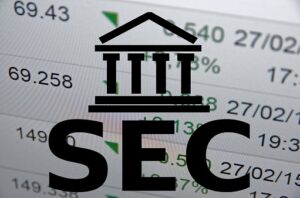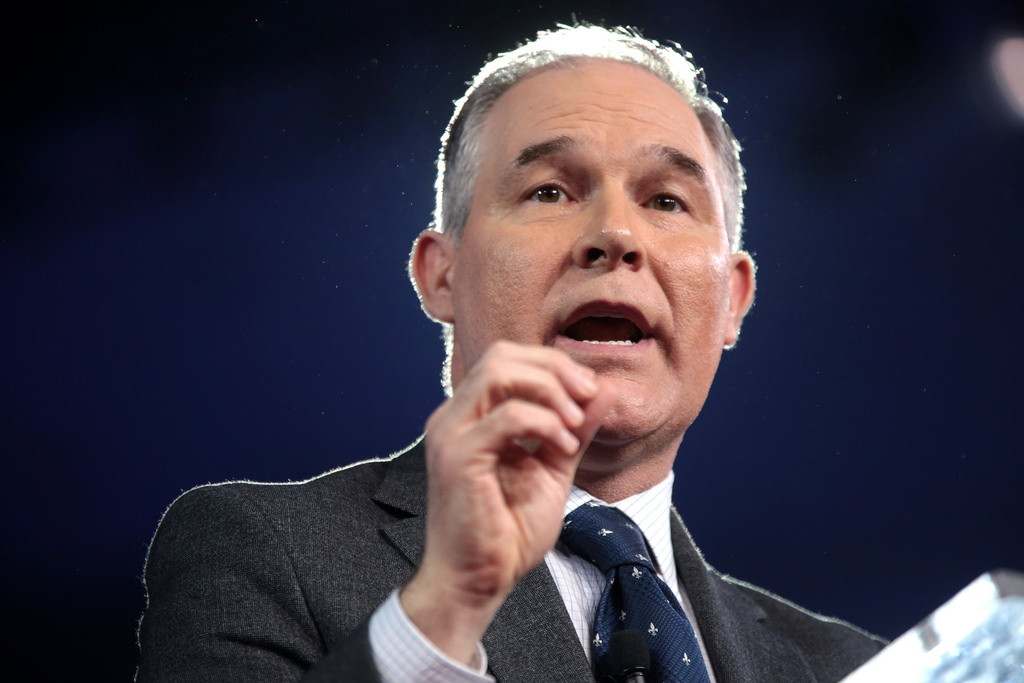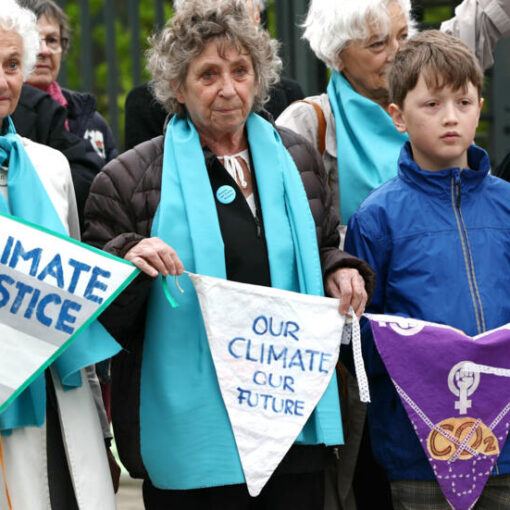 2023 is a significant year for corporate climate disclosure rules: regulators around the world are issuing or strengthening their disclosure requirements for registered companies pertaining to sustainability and climate-related financial risk. In Europe, the European Commission plans to finalize initial reporting standards for corporate sustainability reporting by June. UK regulators are in the process of developing Sustainable Disclosure Requirements and investment labels (“SDR”), with a policy statement and final rules expected this summer. Initial standards from the International Sustainability Standards Board (“ISSB”), termed S1 and S2, are also expected at the end of Q2 2023. In the United States, lawmakers in the state of California introduced several climate bills earlier this year that include a corporate reporting requirement for greenhouse gas emissions. And, a final rule from the Securities and Exchange Commission (“SEC”) detailing its highly-anticipated climate disclosure requirements is expected in the coming weeks. The proposed reporting requirements from the EU, UK, ISSB and California all include some form of mandatory Scope 3 emissions disclosures – but it is uncertain whether the SEC’s final rule will include the Scope 3 disclosure requirements it originally contemplated.
2023 is a significant year for corporate climate disclosure rules: regulators around the world are issuing or strengthening their disclosure requirements for registered companies pertaining to sustainability and climate-related financial risk. In Europe, the European Commission plans to finalize initial reporting standards for corporate sustainability reporting by June. UK regulators are in the process of developing Sustainable Disclosure Requirements and investment labels (“SDR”), with a policy statement and final rules expected this summer. Initial standards from the International Sustainability Standards Board (“ISSB”), termed S1 and S2, are also expected at the end of Q2 2023. In the United States, lawmakers in the state of California introduced several climate bills earlier this year that include a corporate reporting requirement for greenhouse gas emissions. And, a final rule from the Securities and Exchange Commission (“SEC”) detailing its highly-anticipated climate disclosure requirements is expected in the coming weeks. The proposed reporting requirements from the EU, UK, ISSB and California all include some form of mandatory Scope 3 emissions disclosures – but it is uncertain whether the SEC’s final rule will include the Scope 3 disclosure requirements it originally contemplated.
SEC Proposal on Climate-Related Disclosures for Investors
When the SEC issued its proposed rule “The Enhancement and Standardization of Climate-Related Disclosures for Investors” (“Proposed SEC Rule”) in March 2022, it could fairly be interpreted as in the vanguard. The SEC was not the first to require corporate disclosures addressing climate-related financial risks, but the Proposed SEC Rule was a leading and significant step by the primary securities regulator of the largest national economy and second-largest carbon emitter in the world.
The Proposed SEC Rule would, if adopted, require public companies to provide certain climate-related information in their registration statements and annual reports. Among other things, companies would be required to disclose the greenhouse gas emissions caused by their operations through direct combustion ( “Scope 1” emissions) and purchased power or heat (“Scope 2” emissions), as well as emissions caused by their supply chain and use of their products (“Scope 3” emissions) in certain circumstances. The SEC’s Scope 3 proposal is not universal – companies would only be required to disclose their Scope 3 emissions if the company has a goal that covers Scope 3 emissions, or if Scope 3 emissions are material.
Hailed and derided as the most extensive disclosure requirement from the SEC in recent history, the Proposed SEC Rule generated over 5,000 comment letters, and the Scope 3 provision was subject to particular criticism. Final action on the rule, which was expected by the end of last year, was delayed, as the SEC sought to assimilate the high volume of feedback. A final rule is now expected to be announced in April. As this deadline has approached, some media reports have suggested the SEC may scale back the proposed Scope 3 disclosure requirements.
Early Momentum in the UK
Meanwhile, regulators in other jurisdictions have forged ahead. The UK was the first country in the Group of 20 to make climate-related risk disclosures mandatory, including a range of ESG disclosures consistent with the Task Force on Climate-related Financial Disclosures (“TCFD”). TCFD requirements for premium-listed companies in the UK become effective January 1, 2021, with Scope 3 disclosures on a voluntary basis. Regulators are phasing in TCFD-aligned disclosure requirements, including mandatory Scope 3 disclosures, with a goal of aligning the entire UK economy with the TCFD by 2025. To that end, certain asset managers will be required to report their Scope 3 emissions for the first time this year. As well, UK regulators are in the process of developing the Sustainable Disclosure Requirement (“SDR”), which will expand sustainability disclosure and labeling requirements for covered companies, with the first set of SDR rules will likely to be approved this summer.
EU Proposal: Corporate Sustainability Reporting Directive
Material Scope 3 reporting requirements are also expected in 2023 from the EU. The European Parliament adopted the Corporate Sustainability Reporting Directive (CSRD) on November 28, 2022, and it became effective January 5, 2023. The CSRD will be phased in over the next five years, with the first phase of European Sustainability Reporting Standards (“ESRS”) – ESRS 1, Climate Change Reporting Standards – set to be issued by June 30, 2023.
The CSRD significantly expands the scope of covered companies subject to reporting requirements in the EU, and requires covered entities to provide detailed ESG disclosures. ESRS 1, Climate Change Reporting Standards, will include further detail regarding the requirements to disclose Scope 1, 2, and 3 emissions.
The CSRD will apply to all large companies incorporated in an EU member state that meet certain financial and/or employee thresholds. Importantly, non-EU incorporated companies will also be required to comply with the CSRD, if they have significant business operations in the EU (over 150 million Euros per year) and a branch or subsidiary in the EU that meets related financial thresholds. Non-EU incorporated companies listed on an EU-regulated market, including small and medium-sized companies, will be covered as well.
Global Standard Setting: the ISSB
The International Sustainability Standards Board (ISSB), an independent, private-sector body that develops sustainability standards, is also far along in its efforts to establish global non-financial ESG standards and reporting requirements. The ISSB standards establish a voluntary framework that countries may mandate or adapt at their discretion. These standards are scheduled to be completed this year, and many jurisdictions are expected to rely on these standards as a guide in their own implementation of climate-related corporate reporting requirements.
In late 2022, the ISSB voted to include material Scope 3 emissions reporting, in addition to Scope 1 and 2 emissions disclosure requirements. Similar to the SEC, the ISSB heard concerns about including a Scope 3 requirement. It still decided to make Scope 3 reporting mandatory, given the information’s importance in helping investors understand transition risk, though the ISSB standards include several accommodations, including delayed implementation and certain permissible estimations in how companies measure their Scope 3 emissions.
Burgeoning Consensus on Scope 3 Importance
Scope 3 emissions are often a company’s largest contribution to global warming. This is acutely true of fossil fuel companies, making Scope 3 disclosures particularly important to investors in heavy emitters. The calculation of an entity’s Scope 3 emissions can be difficult, given obstacles to accessing data and the variation in measurement methodology. Still, as the UK, EU, and ISSB all take steps to require Scope 3 emissions reporting, a growing consensus is emerging around the importance of these disclosures, and greater sophistication is emerging in the aggregation and analysis of this data. Flaws in voluntary sustainability reports have also driven awareness of the value of Scope 3 mandates in completing the picture of an entity’s emissions, eliminating the potential for companies hide portions of their Scope 1 or 2 emissions by assigning them to external service providers. The urgency of the climate crisis has laid bare the need for corporate transparency to allow investors to assess the physical and transition risks of their holdings.
Uncertainty in the U.S.
Despite this burgeoning consensus, it is uncertain whether the SEC’s final rule will mandate any Scope 3 disclosures. One theory is that the SEC will scale back or eliminate its proposed Scope 3 reporting requirement in an attempt to avoid a court challenge to the final rule. But litigation is nearly assured in any scenario. A year before the Proposed SEC Rule was even issued, the Attorney General of West Virginia announced his intention to challenge any such rule on First Amendment grounds. And the threats of lawsuits from Republican politicians have only intensified since then, as they seek to include climate risk in their broader campaign against ESG analysis.
Approximately 1,020 companies in the U.S. voluntarily disclosed their Scope 3 emissions in 2021, according to CDP, a nonprofit that operates the world’s largest database of corporate emissions data. If the SEC abandons its proposed Scope 3 disclosure requirements, this trend toward voluntary reporting can be expected to grow, given investor demand for supply chain transparency and corporate preferences for standardization.
Scope 3 disclosures may also become mandatory in California, the largest state economy in the U.S., and the largest sub-national economy in the world. On January 30, 2023, California legislators introduced the California Climate Corporate Data Accountability Act (“California Emissions Act”). If passed, the California Emissions Act will require all U.S. companies with at least $1 billion in revenue doing business in California to disclose their greenhouse emissions, including Scope 3 emissions, beginning in 2026. This would include both public companies, like those subject to the Proposed SEC Rule, as well as private companies – significantly expanding the scope of covered entities in the U.S.
Many U.S. companies would also be covered by the EU’s CSRD requirements. In connection with the EU’s new reporting regime, an equivalency mechanism will be adopted by the EU under the “substantial compliance” doctrine that could exempt an entity from the CSRD reporting requirements. For U.S. companies, it is unknown whether the Proposed SEC Rule, once finalized and adopted, would be deemed equivalent. Indeed, the inclusion or omission of Scope 3 reporting requirements could impact that equivalency assessment, determining whether companies are permitted to exempt out of the CSRD. Ironically, multinational companies who have expressed concerns about the burden of complying with the Proposed SEC Rule might ultimately prefer a more robust SEC rule that would satisfy the CSRD, rather than an obligation to comply with the even more onerous EU regime.
Cynthia Hanawalt is the Director of Climate and Business Law at the Sabin Center for Climate Change Law.





